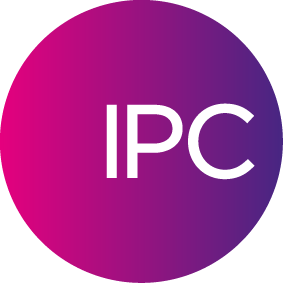By Patrick Chambeau, Director of Marketing, IPC
After a few European trips this summer, during which I travelled to some of the region’s key financial cities including Paris, London, and Barcelona, last week I found myself in Amsterdam – specifically the Beurs Van Berlage, the birthplace of European trading.
There for the Fixed Income Leaders Summit, I was fully aware of what this monumental building means in the history of stock exchanges. Trading was born here, in the heart of Europe, in 1602. Indeed, the first stock exchange was founded by the Dutch East India Company, which came up with the idea of issuing shares in order to finance their maritime activities. When you step in to the Beurs Van Berlage building, you’re immediately aware of the historic magnitude and flourishing years of trading in the 19th century, which seems a world away from today’s electronic trading and high frequency markets. The Fixed Income Leaders Summit was, as expected, a very well-attended gathering of 800-plus global senior executives of one of the most complicated and fragmented asset classes. Representatives of buy-side firms, asset managers, sell-side firms, large investment banks, liquidity venues, exchanges, and technology vendors were all present and keen to discuss the top challenges and trends impacting the financial markets.
From the time of the opening session, a big focus was on the anticipation around the forthcoming MiFID II implementation on January 3, 2018. Discussions centred on: How can financial market participants be strategic and creative when imagining their 2018 and 2019 roadmaps? How can one foster ideas and start thinking proactively, as opposed to being reactive, in light of MiFID II enforcement? What are the financial market’s needs and trends as the future of trading evolves?
While it is a real challenge to summarize multiple days and hours of active discussions, it’s always beneficial to reflect on key topics as a way to understand critical industry concerns. These included:
- How to successfully navigate within the fragmented world of Fixed Income
- The role of voice and the emergence of data when managing trading under MiFID II
- How to adopt a more proactive approach to sourcing liquidity
- The multi-asset trading desk and how to make it become a reality
- Best Execution methodology in Fixed Income and how Best Execution models have progressed
- The automation of low touch trading to help the next generation of traders focus on high touch trading
- The enablement of compliant and more efficient workflows in a rapidly evolving global Fixed Income landscape
- What tools or technology to choose in order to streamline workflows
- The new generation of junior data scientists arriving in the business to support traders in their day-to-day decisions around data, analysis of the data and strategies
- A compliance focused approach to business inherently involves greater transparency. With MiFID II pending and the anticipation of numerous policies, appropriate level of contracts, standards, and checklists to enforce, how day-to-day compliance in business becomes a reality?
- TCA (Transaction Costs Analysis) vs TCO (Total Cost of Ownership)? Price vs costs vs value?
- Having the right metrics to make informed decisions
- Moving towards Brexit: understanding market conditions and the geo-political chess-game, the potential implications on the European landscape, and how this may affect Fixed Income investments in the medium to long term.
With regulatory change afoot, it’s clear firms want to understand how they can maintain constant market access and liquidity, remain competitive, and still control costs. Improvements in operations, productivity and efficiency remain key challenges in this age of greater speed and digital transformation, but there’s a clear consensus that with creativity, imagination and forward-thinking strategies, the financial markets will be able to navigate these developments.
The Fixed Income Leaders Summit 2017 was a significant industry event in terms of fixed income historic significance and business insights, and was a great opportunity to hear industry thought leaders discussing the highly anticipated MiFID II and future trends in the financial markets, and, more importantly, initiating conversations on how to manage these changes.
Our Summit participation allowed us to highlight IPC’s unique holistic approach in helping counterparties to connect, exchange information, mitigate risks and leverage the cloud that can help firms not only address, but benefit from the new challenges generated by data requirements and other emerging business needs.

